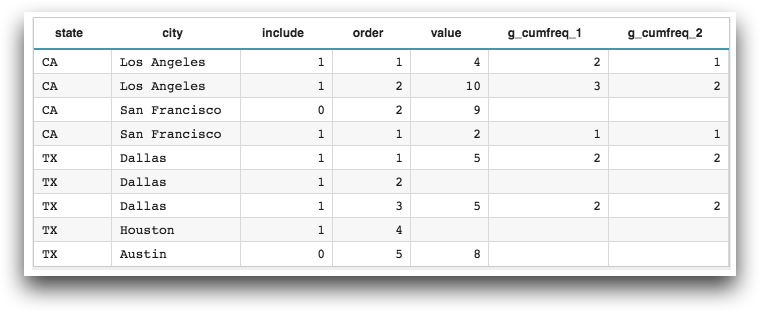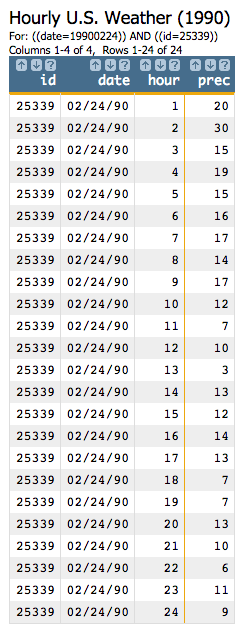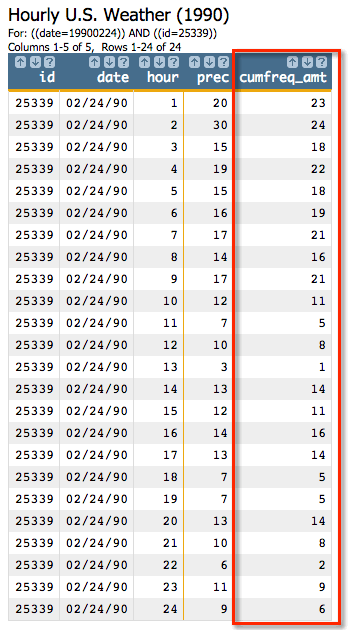g_cumfreq(G;S;O;X)
Returns the cumulative frequency of values within a given group.
Function type
Vector only
Syntax
g_cumfreq(G;S;O;X)
t_cumfreq(X)Input
| Argument | Type | Description |
|---|---|---|
G |
any | A space- or comma-separated list of column names Rows are in the same group
if their values for all of the columns listed in If If any of the columns listed in |
S |
integer | The name of a column in which every row evaluates to a 1 or 0, which determines
whether or not that row is selected to be included in the calculation If
If any of the values in
|
O |
integer or decimal | A space- or comma-separated list of column names that
determine the row order within a particular group Note: The
O parameter has no effect and may be omitted. |
X |
any numeric type | A column name |
Return Value
For every row in each group defined by G (and for those rows where
S=1, if specified), g_cumfreq
returns an integer value corresponding to the number of valid (non-N/A) values of
X within the group that are less than or equal to the current value of
X.
Sample Usage
<base table="pub.doc.samples.ref.func.g_func_time_series_sample_usage"/> <willbe name="g_cumfreq_1" value="g_cumfreq(state;include;order;value)"/> <willbe name="g_cumfreq_2" value="g_cumfreq(state city;include;order;value)"/>

Example
Let's use the Hourly U.S. Weather (1990) table
(pub.demo.weather.hourly90) to demonstrate the use of
g_cumfreq(G;S;O;X).
Let's say we want to find out, for every hour of a particular day, how many hours of the day it rained as much or less.
<sel value="(date=19900224)"/>
<sel value="(id=25339)"/>
<colord cols="id,date,hour,prec"/>This will give us the following:

prec is the hourly precipitation measured in .01 inches.g_cumfreq(G;S;O;X).
Since we've already selected the rows that we want for our group, we can omit the
G parameter. We'll also omit the S parameter, since we
want to consider all rows in this group. We can also omit the O parameter
since it has no effect for this function. Finally, we'll specify the prec
column for X since we want to calculate the cumulative frequency of
precipitation.<willbe name="cumfreq_amt" value="g_cumfreq(;;;prec)"/>This will give us the following:

This new column shows, for example, that at 10 a.m. on 2/24/90, it rained .12 inches, and that there were 11 hours that day that it rained that much or less.

Additional Information
- The
t_version of this function defaults theGargument and omits theSandOarguments. The default forGis set at table load time based on the organization of the table.
